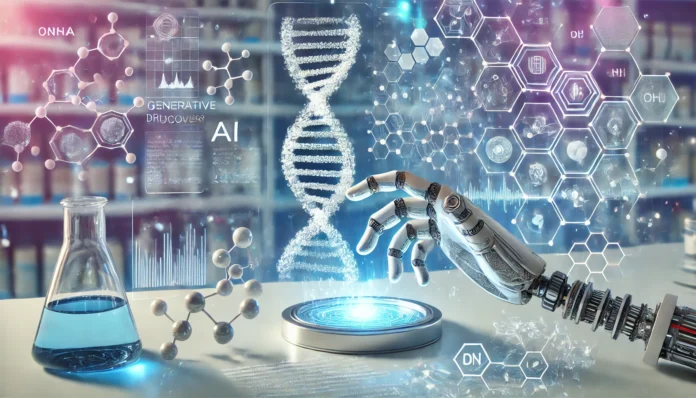Artificial intelligence continues to make waves across industries, and nowhere is this more evident than in healthcare. Recent advancements in AI-powered drug discovery , particularly leveraging generative models , are reshaping how pharmaceutical companies approach the development of new treatments. This innovation not only accelerates timelines but also reduces costs significantly, offering hope for faster solutions to pressing global health challenges.
The Rise of AI in Drug Discovery
In the past two days, a groundbreaking announcement by Insilico Medicine—a leader in AI-driven drug discovery—has captured global attention. The company unveiled its latest generative AI model capable of designing novel molecules tailored to target specific diseases. Unlike traditional methods that rely on trial-and-error experimentation over years, these advanced algorithms can simulate thousands of molecular structures within hours, identifying promising candidates far quicker.
Generative models like AlphaFold from DeepMind and MolGPT have already demonstrated their potential in predicting protein folding and generating bioactive compounds. Now, tools such as Insilico’s Chemistry42 platform are taking it further by integrating machine learning with chemistry principles to create entirely new drugs from scratch.
According to Dr. Alex Zhavoronkov, CEO of Insilico Medicine, «We’re entering an era where AI doesn’t just assist scientists—it becomes a co-creator in the lab.» This statement underscores the transformative role AI plays in modern medicine.
Real-World Impact: A Case Study
One notable example is the collaboration between Insilico Medicine and pharmaceutical giant Pfizer. Together, they identified a novel compound targeting idiopathic pulmonary fibrosis (IPF), a chronic lung disease with no cure. Using AI, the team was able to design and validate the compound in under 18 months—a process that typically takes up to a decade using conventional techniques.
The implications are profound. By drastically cutting down research timelines, AI enables pharmaceutical companies to respond rapidly to emerging pandemics or rare diseases that previously lacked sufficient funding due to long development cycles.
Ethical Considerations and Regulatory Challenges
While the benefits are undeniable, the rise of AI in drug discovery raises important questions about ethics and regulation. Critics argue that reliance on proprietary algorithms could lead to monopolies, limiting access to life-saving medications. Additionally, ensuring the safety and efficacy of AI-designed drugs remains paramount, requiring robust regulatory frameworks.
To address these concerns, organizations like the FDA and EMA are actively exploring ways to adapt existing protocols to accommodate AI-generated therapies. For instance, the FDA recently launched the Digital Health Center of Excellence to streamline approval processes for AI-based medical innovations.
Market Growth and Investment Trends
The market for AI in drug discovery is booming, projected to reach $3.5 billion by 2027, according to Grand View Research. Venture capitalists are pouring funds into startups specializing in AI-driven biotech solutions. In the last quarter alone, companies like Atomwise and Exscientia secured multimillion-dollar investments, signaling strong confidence in the sector’s future.
This surge in funding reflects growing recognition of AI’s ability to solve complex problems efficiently. As more success stories emerge, we can expect increased adoption across the pharmaceutical industry.
Looking Ahead: What’s Next?
As AI continues to evolve, its applications in drug discovery will expand beyond small molecules to include personalized medicine, gene editing, and even regenerative therapies. Tools powered by large language models may soon assist researchers in synthesizing vast amounts of scientific literature, uncovering hidden insights that could spark the next big breakthrough.
For now, the convergence of AI and healthcare offers a glimpse into a brighter future—one where innovative technologies save lives faster and more affordably than ever before.




